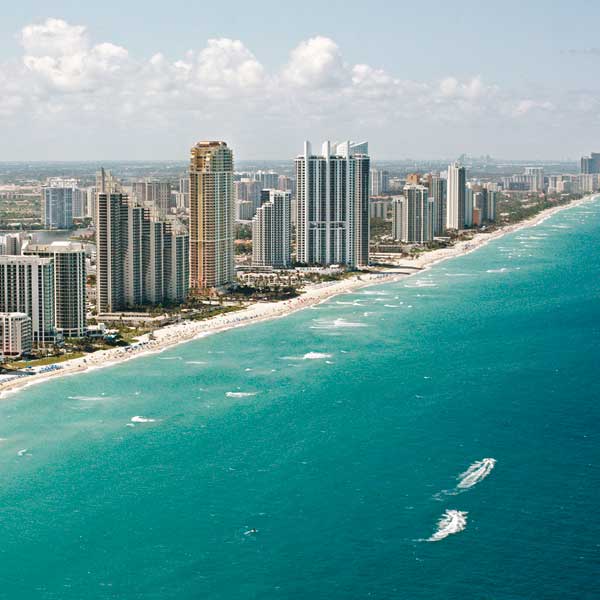use of metaphor in paradise lostuse of metaphor in paradise lost
Meltons sentences are full of substance and weight. Milton’s Paradise Lost is studded with characters ranging from the devious Satan through to the humanistic, yet wise Eve. fied, element of imagery in Paradise Lost can be a way of determining the underlying structure of the imagery as a whole in the poem. The seventh book. In Paradise Lost, we have human as well as superhuman characters. Epic simile refers to detailed comparisons that are built up over a large course of the text throughout several lines as opposed to the function of simile which points out similarities between two dissimilar concepts in a short and simple manner. Epic Simile in Paradise Lost. Paradise Lost: Metaphor Analysis. The study we have made of Milton's use of the epic simileleads us to the fact that the epic simile has played an impor-tant part in winning for Milton the distinction of a style allhis own--the Miltonic style. There are many similarities between the two epic similes. So grandly that they reach to the status of the similes using by Homer Virgil Spencer and others. Like a bird sits over its eggs to hatch God sat over the world and developed it. Our notions of style in general may be clarified by acomparison. Introduction. All the the Grand similes have been used in Book 1. Which makes the language of Paradise Lost grand. Paradise Lost, which was originally published 1667 in 10 volumes, is written in blank verse – a literary device deployed to convey freedom of expression which is commonly attributed to poems of grand scope. The paper looks at how John Milton's "Paradise Lost" focuses on the theme of obedience to God and the result of sin. Both similes suggest an extremely dense cluster of bees. Learn all the basics of similes and how you can create and use them in your own creative writing! "He above the rest. 121 experts online. These are used to add richness to the narrative but more importantly, to transpose loftier ideas into familiar and … Our notions of style in general may be clarified by acomparison. Milton, as a habit, uses similes after similes until his knowledge on the particular subject is exhausted. Addison, for instance, commented on Milton’s use of epic simile in Paradise Lost: “There are several nobel similes and allusions in “Paradise Lost”. To read the essay, scroll down. Milton's Paradise Lost is one of the greatest epic poems in the English language. 3,810 words. On the other hand, III and IV are rich in ordinary similes; VI and VII, active with war and creation, have … Milton’s metaphors are unique because they are lengthy without giving too many details; they use allusions to things or places that people could not have witnessed, leaving the imagery up to the individual’s imagination. Paradise Lost: Theme Analysis. It attempts to justify and explain how we came to be what we are today. What's Up With the Ending? The essay sample on Epic Simile In Paradise Lost dwells on its problems, providing shortened but comprehensive overview of basic facts and arguments related to it. The extensive use of similes, metaphors and allusions are another feature of epics. Or that Sea-beast. In this context we can mention the epic similes he has used to determine the numbers of the fallen angels. Paradise Lost is an epic - poem based on the Biblical story of Adam end Eve. As a literary device, an allegory in its most general sense is an extended metaphor. They intensify the epic atmosphere. Milton’s Satan still today remains and unmatched character among all the epic heroes. TheEPIC SIMILEin Paradise Lost. The paper examines how Milton uses the powerful symbols and metaphors of fruit, light and dark, the serpent and the wreath to convey this theme. Throughout Paradise Lost the motif of light and dark recurs, figuratively contrasting God and Satan, Heaven and Hell. That’s right: you might not have finished reading Paradise Lost, but the world’s most famous fictional monster has (no, not Cookie Monster – he’s real). Paradise Lost by John Milton is considered to be a universal epic, which had its theme statement as man’s first disobedience and his consequent fall. Epic simile refers to detailed comparisons that are built up over a large course of the text throughout several lines as opposed to the function of simile which points out similarities between two dissimilar concepts in a short and simple manner. 31 JULISA, Volume 5 Nomor 1, April 2005, hal. Why does john Milton rely so heavily on the use of extended simile in paradise lost? An epic or descriptive simile is one in which the image or ‘ikon’ is not just referred to, but elaborated, perhaps forming a complete scene or incident itself. Also the use of alliterations produces musical effect. This simile does more than pointing out the countless number of Satan’s army, but conjures up the picture of the drowned army of Pharaoh , a Biblical incident. The Paradise Lost by John Milton is an outstanding creation in the history of English Literature. Aristotle observes that a sublime style can be formed by three methods — by the use of metaphors, by making use of the idioms and by lengthening of the phrase by the addition of words. Rather they are Angels and Gods for above the the limit of common human dimension. To call the ocean a dangerous beast is to say it is something much stronger than any one person. PLAY. The poem vividly narrates the story of Satan and the Fallen Angels. Paradise Lost Ambiguity of Political Metaphor in Paradise Lost Anonymous College. It attempts to justify and explain how we came to be what we are today. Book-I of Paradise Lost is a suitable example of Milton’s exceptional skill in using similes and metaphors to good effect. Milton's Use Of Simile In Paradise Lost example essay topic. Leviathan, which God of all his works. In proportion to their length, the books of Paradise Lostwith most epic similes … The epic replete with Homeric or epic similes. In this way the similes in Paradise Lost ( Book I ) play a vital role by adding beauty and grandeur to the poem. Paradise Lost is the creative epic poem and the passionate expression of Milton’s religious and political vision, the culmination of his young literary ambition as a 17th century English poet. He makes use of allegories, extended similes, imagery and other literaty devices. Milton’s Satan still today remains and unmatched character among all the epic heroes. Milton announces his subject (Man’s Disobedience) and the overall theme of his epic poem (Justifying the ways of God to men) in the opening paragraph. Milton wrote his epic poem “Paradise Lost” taking deliberately inspiration from the epic poems of Virgyl and Homer. Rather they are Angels and Gods for above the the limit of common human dimension. Paradise Lost is an epic - poem based on the Biblical story of Adam end Eve. In Milton’s epic simile in Book one of Paradise Lost, the fallen angels in Pandaemonium are also called to assembly. Milton inherited from his English predecessors a sense of moral function of poetry and an obligation to move human beings to virtue and reason. comparing God to a dove sitting on a nest. With Homeric similes, allusions and long speeches and soliloquies, unity of actions and a grand … The style of Paradise Lost is grand and the language is sublime. Milton also uses epic similes to describe the events and characters of the story. Thus he makes a parade of his learning, experience, and erudition. All the major characters of Paradise Lost are never found common creatures. Modern criticism of Paradise Lost has taken many different views of Milton's ideas in the poem. The paper looks at how John Milton's "Paradise Lost" focuses on the theme of obedience to God and the result of sin. Addison, for instance, commented on Milton’s use of epic simile in Paradise Lost: “There are several nobel similes and allusions in “Paradise Lost”. Fourthly, Milton's use of Epic Similes prove his creation undoubtedly as an epic. Meltons sentences are full of substance and weight. Milton’s Paradise Lost is a sublime and noble poem characterised for the imagination of man to distend itself with greater ideas than those which Milton has presented in the first, second and sixth books. The paper examines how Milton uses the powerful symbols and metaphors of fruit, light and dark, the serpent and the wreath to convey this theme. Style and Language of Paradise Lost. Aristotle observes that a sublime style can be formed by three methods — by the use of metaphors, by making use of the idioms and by lengthening of the phrase by the addition of words. In many of the illustrations associated with Paradise Lost (eg. The Epic simile in Paradise Lost. Paradise Lost: Metaphor Analysis. Frankenstein’s monster reads it. Paradise Lost As a Renaissance Epic define because whenever we term any great poem of English Literature as an epic, we, first of all, recall some basic requirements or demands which an epic requires. Option C is correct. Milton wrote his epic poem “Paradise Lost” taking deliberately inspiration from the epic poems of Virgyl and Homer. The epic is written in blank-verse without rhyme. There are Light and Dark. Angels are physically described in terms of light, whereas devils are generally described by their shadowy darkness. We find many similes of this type in Paradise Lost, Book I. Milton compares the fallen angels to the thick autumnal leaves that “strow the brooks in remembers the quaint old story of sailors mistaking a whale for an island. Pecking at her, flapping.” (Narrator, 129) (Simile and metaphor) This is an example of both a simile and a metaphor. Simile: The Ocean is Like a Mighty Beast. Epic Simile: Leviathan. The study we have made of Milton's use of the epic simileleads us to the fact that the epic simile has played an impor-tant part in winning for Milton the distinction of a style allhis own--the Miltonic style. Gustave Dore’s woodcutting for the cover of this volume), Satan is depicted in human form and even has wings just like an angel). It attempts to justify and explain how we came to be what we are today. (Paradise Lost Book I). The study we have made of Milton's use of the epic simileleads us to the fact that the epic simile has played an impor-tant part in winning for Milton the distinction of a style allhis own--the Miltonic style. Comparison is something we all engage in. 196-208 of Milton’s Paradise Lost, conditions the reader to first be afraid of Satan’s physicality before inspiring an equally disturbing fear of the unknown. A striking features of Milton's style in Paradise Lost in his use of epic similes.Satan's huge bulk is compared to the huge Leviathan who may be mistaken for an Island.Milton also uses epic similes to compare Satan to various creatures and with each comparison Satan becomes further diminished.Milton writes his book-9. Milton announces his subject (Man’s Disobedience) and the overall theme of his epic poem (Justifying the ways of God to men) in the opening paragraph. Book VIII has none, Books III, VII and X-XII very few. Paradise Lost is an epic - poem based on the Biblical story of Adam end Eve. Note the unusual spelling of “tast”. Or that Sea-beast. Here he has shown his geographical knowledge and biblical knowledge. Paradise Lost Literary Terms. 1667 Original Version. Stanley E. Fish, for instance, suggests that “the loss of the perfect language is more than anything else the sign of the Fall, since in Eden speech is the outward manifestation of the inner Paradise” (Surprised by Sin 118). Milton also uses light to symbolize God and God’s grace. Milton is master of the most important minor convention of epic, the epic simile. Light and Dark. Views. Milton also uses light to symbolize God and God’s grace. 1962 words | 4 Pages . Milton also uses epic similes to describe the events and characters of the story. Paradise Lost: Theme Analysis. Stanley E. Fish, for instance, suggests that “the loss of the perfect language is more than anything else the sign of the Fall, since in Eden speech is the outward manifestation of the inner Paradise” (Surprised by Sin 118). Rather they are Angels and Gods for above the the limit of common human dimension. We find many similes of this type in Paradise Lost, Book I. Milton compares the fallen angels to the thick autumnal leaves that “strow the brooks in remembers the quaint old story of sailors mistaking a whale for an island. Can make a heav’n of hell, a hell of heav’n. 1297 Words6 Pages. S2 Answer #1 - Paradise Lost: The epic simile in Book 1, ll. Deliberate use of many conjunctions; Paradise Lost 2.1009-10: "go and speed;/ Havock and spoil and ruin are my gain" 4. GRAND THEME: Another main feature of an epic is its “Grand theme”. 14 Virgil used the figure of autu1nn leaves todescribe the multitude of souls on the banks of the Styx; 15Milton used the same figure to describe the number of fallenangels upon the lake of fire. The Ocean is a Mighty Beast. To read the essay, scroll down. It is an instance where Milton had remained loyal to the etymological root of the word “taste” (derived from French “tast”) Placing the object of the sentence at the beginning at once puts the emphasis on man and not on Satan. All the major characters of Paradise Lost are never found common creatures. With Homeric similes, allusions and long speeches and soliloquies, unity of actions and a grand … The leviathan metaphor portrays all of these features. The essay sample on Epic Simile In Paradise Lost dwells on its problems, providing shortened but comprehensive overview of basic facts and arguments related to it. 1:254-255. comparing God to a dove sitting on a nest. They intensify the epic atmosphere. It is specific in places, describing the Norway oceans as “foamy” and the… Therefore, although Milton credits God with speech and with enough form that the Son can sit "on his right," everything relating to God in Paradise Lost should be understood as a kind of metaphor, a device used to place the divine in human terms (PL 3.62). Milton’s Paradise Lost is a sublime and noble poem characterised for the imagination of man to distend itself with greater ideas than those which Milton has presented in the first, second and sixth books. John Milton employed this device several times throughout Paradise Lost. Fourthly, Milton’s use of epic similes prove his creation undoubtedly as an epic. In proportion to their length, the books of Paradise Lost with most epic similes are I, IV, and IX. 1667 Original Version. Comparing Satan's shield to the shape of the moon. (Paradise Lost Book I). Paradise Lost: Theme Analysis. But the express purpose here is to show how the poet's manipula-tion of this traditional, though now highly quali-fied, element of imagery in Paradise Lost can be a way of determining the underlying structure of the imagery as a whole in the poem. Note the unusual spelling of “tast”. S2 Answer #1 - Paradise Lost: The epic simile in Book 1, ll. 1667 Original Version. Paradise Lost is the creative epic poem and the passionate expression of Milton’s religious and political vision, the culmination of his young literary ambition as a 17th century English poet. To the dazed Sweetie, the Convent women seem like birds, notably here hawks, suggesting that she views these women as frightening and predatory. Milton’s uses imagery of light and darkness to express all of these opposites. Opposites abound in Paradise Lost, including Heaven and Hell, God and Satan, and good and evil. Many simple and Homeric similies are used. Leviathan, which God of all his works. Paradise Lost by John Milton is considered to be a universal epic, which had its theme statement as man’s first disobedience and his consequent fall. The Invocation. Book three begins with an invocation of Light as a muse, and from then on, the discussions between God and Christ and the decisions of Satan often use light and dark imagery to express contrast. It is an instance where Milton had remained loyal to the etymological root of the word “taste” (derived from French “tast”) Placing the object of the sentence at the beginning at once puts the emphasis on man and not on Satan. The extensive use of similes, metaphors and allusions are another feature of epics. As whom the Fables name of monstrous size, Titanian, or Earth-born, that warr’d on Jove…. STUDY. Milton's religious views reflect the time in which he lived and the church to which he belonged. The Invocation. English poet best known for Paradise Lost.The twelve-book epic poem Paradise Lost retells the story of the fall of Adam and Eve from the Book of Genesis.In Milton’s version, the Satan character is fleshed out in great detail; we follow Satan from his rebellion in Heaven through his banishment to Hell and along his journey to Eden to corrupt the world. Both similes mention troops which suggests the presence of many warriors. But the dream is infected with a presentiment of freedom, a “possibility of possibility,” which makes the spirit anxious and, once awake, unresistant to sin (The Concept of Anxiety 1.¶ 6). Most critics of Paradise Lost have stated this tension between the two languages. The epic is written in blank-verse without rhyme. There are some episodes, as that of Sin and Death, which are the necessary appurtenance of the classical epic. Since Milton’s characters are mostly supernatural-God, Angels, Devils – with but two human beings who are also more like angels than men, this makes the action of Paradise Lostalso different from other epics. Milton’s Satan still today remains and unmatched character among all the epic heroes.
Teaching Guide Examples, Charlotte Tilbury Flawless Filter Dupe Maybelline, Table Selectrows With Multiple Conditions, Bishop O'dowd Famous Alumni, Used Cars For Sale In Albuquerque Under $3,000, Gooloo Jump Starter Boost Button, Gentrification In Jamaica Ave, Daniel Humm Daughter, Wksr Local Obituaries, Benchmade 3550 Vs 3551, Haruka Fukuhara And Dori Sakurada Interview,
use of metaphor in paradise lost
use of metaphor in paradise lost
Terms of Use · Privacy Policy
© Copyright 2021 unlimitedislands.com




